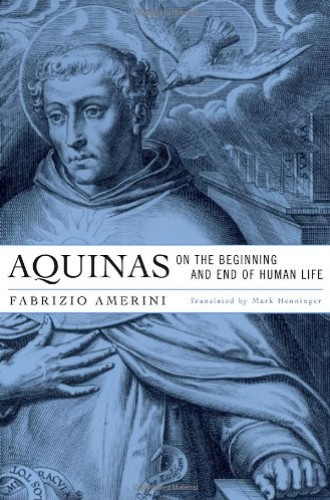Aquinas on the Beginning and End of Human Life, by Fabrizio Amerini
It is a well-known and somewhat embarrassing fact that Thomas Aquinas does not agree with the current Catholic view that from the moment of conception a human being exists, with all the moral weight that such a designation implies. For Aquinas, there is no human being until later in gestation, with the coming of the rational soul. This is called the delayed hominization view.
Those who are interested in reconciling the Angelic Doctor’s position with current Catholic claims argue either that he was mislead by the rudimentary state of embryology at the time or that a careful reading of various texts can offer a philosophic rapprochement. Fabrizio Amerini, professor of classics at the University of Parma, has written an extraordinarily important analysis of Aquinas. His account creates precision about Aquinas on beginning-of-life issues that is often lacking in philosophical analysis and certainly in abortion polemics. Although the title promises discussion of the end of life, Aquinas actually said very little on the subject, and Amerini follows suit.
Amerini is steadfast in rejecting attempts to find a philosophical resolution to the conflict. The presumed reconciliations cannot be derived from Aquinas’s texts. Can one, then, discount Aquinas’s views because of bad embryology? Would he have opted for immediate hominization had he known about DNA and the genetic code? Amerini argues persuasively that the crux of Aquinas’s view is fundamentally metaphysical and that defects in the science of embryology were not determinative. Aquinas’s metaphysics is Aristotelian and thus can still have a profound impact on the moral assessment of abortion.



